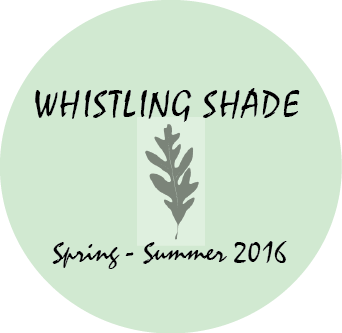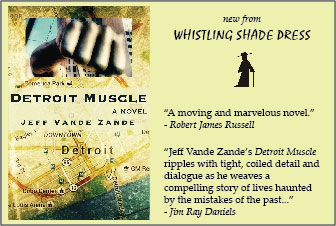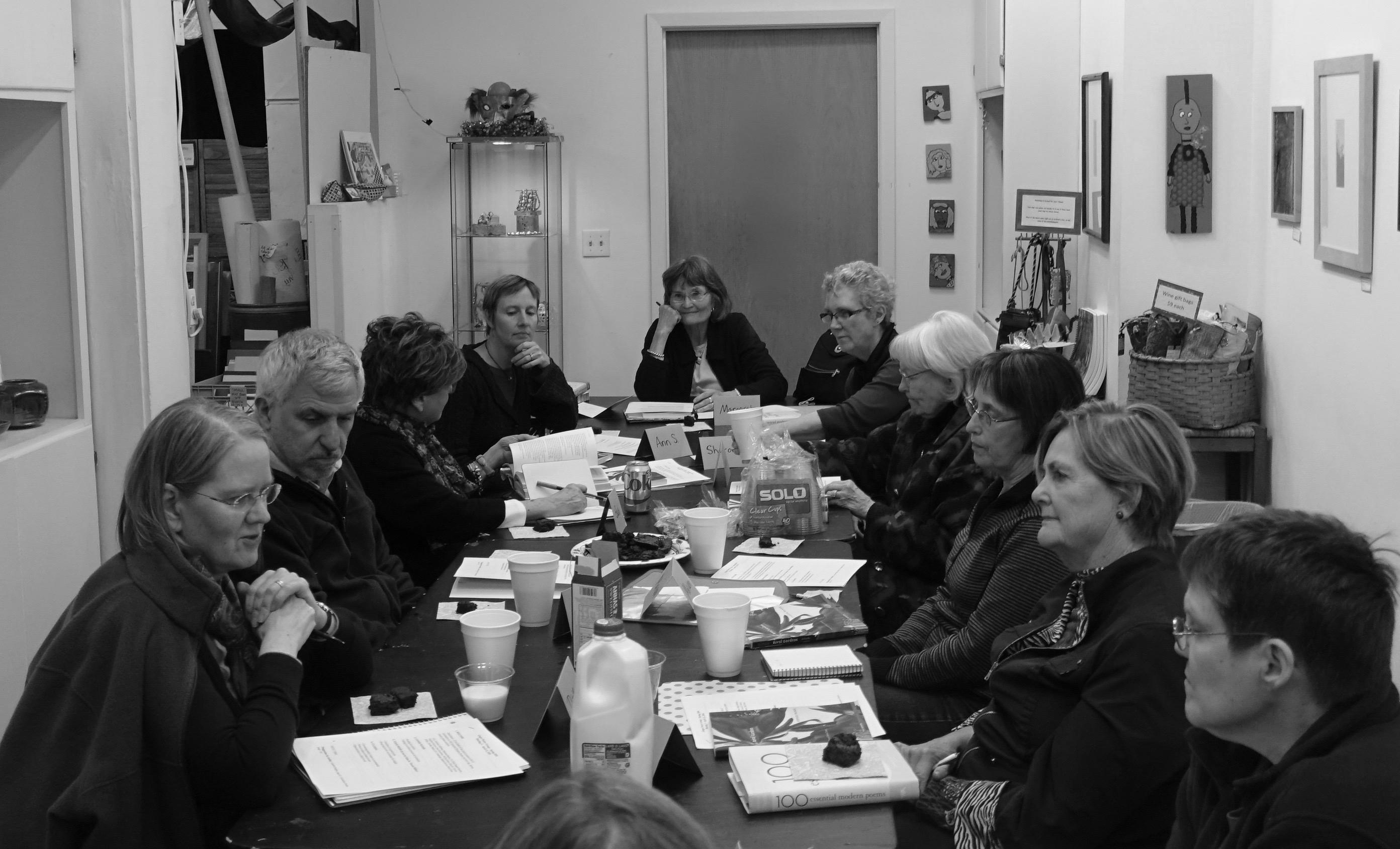


|

| <- Back to main page |
Writers spend a lot of time alone writing. We don’t have a natural built-in community of colleagues who make art together as actors in a troupe or musicians in a band. Many of us join a writers’ workshop or group to be close to other writers, learn about their writing process, and be inspired by their suggestions and work. Getting and giving useful response to members’ writing is the main purpose of workshops, whether self-guided or led by a writer, affiliated with an organization like The Loft Literary Center or independent. The idea is to help all the writers in the group grow and improve.
These are among the benefits of being part of a writing workshop:

- Deadlines to get new pieces of writing in shape to share.
- Useful feedback that contributes to revision and strengthening of work.
- Rewards of being part of something larger than one’s own literary contribution.
- Learning how to respond to other people’s writing.
- News about readings, publications, and other literary opportunities.
- Writing prompts that yield new work.
Some drawbacks in writers’ workshops may include:
- Challenging group dynamics, such as overly dominant individuals and chaotic agendas.
- Responses that might be uninformed, misguided, or discouraging. (A writer need to know how to take what’s helpful to her voice and leave the rest. As Walt Whitman wrote: “Dismiss that which insults your soul.”)
- Trying to please the group’s tastes, rather than one’s own.
- Requirements of time and sometimes money to participate.
Most pitfalls can be avoided with careful planning and time set aside periodically for the members to discuss and recommit to satisfying group processes. Workshops have their start in many places, such as in libraries, coffee shops, and churches. Some are offered in the form of a class by an institution with a teacher as a built-in leader. As with book clubs, a circle of friends might form a workshop or the members might initially be strangers. I’ve been part of many workshops as participant with peers or as a teacher-leader. A few years ago I joined a group of women poets called Onionskins that’s existed, through turnover, for forty years. At the moment I’m also leading two poetry workshops, one for seniors at a community center sponsored by the East Side Arts Council with funding from the Minnesota State Arts Board. The other is ongoing an workshop with an unusual story.
Six years ago poets from my beginning poetry writing class at The Loft bonded with each other and with me and asked me to facilitate freelance meetings when the class ended. As an informal collective, they pooled their money to pay me, and we began routinely holding two or three sessions annually, each with six to 12 meetings. ArtStart, a nonprofit organization, provided space for us to meet. Ginger Poetry Group became our informal name when we noticed our predilection for bringing ginger tea, gingersnaps, and chocolate-covered ginger bites to meetings. In the summer, the group has met on its own, without me, at members’ homes. Turnover is rare, but there’s been enough to know our little community is able to grow and change.
Do writers’ workshops really work? This one has. All members have deepened their practice, including me. Many new poems, sometimes from assignments, have emerged and become stronger through revision. Although the endgame of writing poems is not necessarily to publish, publication can be one sign that workshops help writers achieve goals. In 2015, Finishing Line Press released member Dorothy Schlesselman’s collection of poems, This Wild Country. In 2016, Joan Johnson’s An Alphabet of Aging and Miriam Weinstein’s Twenty Ways of Looking will be published. On top of these successes, this year Red Bird Chapbooks will bring out A Little Book of Abundance, an anthology of poems by all Ginger Group members in a recent session.
An important feature of the workshop is the use of prompts or exercises to stir the imagination. I’ve created many prompts, but also rely on ideas from other teaching poets, such as Steve Kowit’s In the Palm of Your Hand: The Poet’s Portable Workshop, a book chock-a-block with suggestions and example poems.
The following poems by members of the Ginger Poetry Group workshop came from assignments.
French Kiss
by Ann Schroeder
I wonder if you remember that night,
you, the freshly-minted boy who first kissed me
on the point at Como Lake,
how you led me out on the asphalt path,
and we folded into each other
on the concrete compass dial at the end,
I facing north and you south.
The dark bulk of you in front of me
blotted out the watery flecks of light
and the white pavilion beyond
and you pulled me in
close against your leather jacket,
the wide set of your hockey player’s hips just
higher than mine.
We lapped at each other
like those little city waves
lapped the cold spring mud
near our shifting feet,
lips in delicate trade
when suddenly your tongue
was in my mouth and I bit down
at the shock of it,
laughed and
pushed you back.
(The prompt for “French Kiss” was to write about an erotic situation that wasn’t an experience of consummation––a first date, the touching of a face, an intense conversation.)
Frying an Egg in an All Night Diner
by Nancy Christensen
Pat of butter hits the hot pan
and sizzles in a dizzying circle.
The cook, corseted in an apron
smudged with grease, balances
an egg between thumb and forefinger,
cracks it on the edge of the pan
and plops it into the swirling center.
Adding a sprinkle of pepper
and a shake of salt he waits,
with vigilance, for the edges
to curl and the white to set.
Can you hurry it up, the customer
asks. Nope, cook says, wiping his
hands on his apron, fryin’ an egg
ain’t easy.
(“Frying an Egg in an All Night Diner” was prompted by the idea of writing about a mundane experience that attention makes unusual.)
The Left Hand Speaks
by Anne Curtin
It is late, it is early.
I am where I never want to be––
in bed in the dark.
At dinner Mom gave me extra cookies,
said she has to make my pants
bigger again, and again
I hear her Singer zinging,
sewing my mouth shut.
I want different, I want light.
(The assignment that prompted “The Left Hand Speaks” was to write with your opposite, non-dominant hand.) 